
If you are an avid coffee drinker or have family members who drink coffee, chances are that you own a coffee maker. However, did you know that your coffee machine has to be cleaned regularly? Most people assume that making a cup of coffee using your coffee maker wouldn’t generate any germs, and hence wouldn’t require any cleaning of the coffee maker. However, you’d be surprised at how much dirt and gunk can accumulate in your coffee maker.
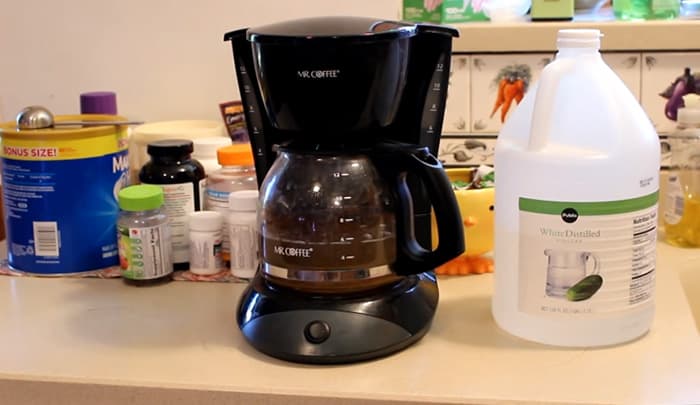
Read more to understand why cleaning your coffee maker is so important, and don’t fret if you haven’t cleaned your coffee machine in a while, as this article will provide you with the easy and necessary steps you should take when cleaning your coffee maker.
In order to clean a coffee maker without vinegar, you have to use a replacement cleaning agent. Some homemade alternatives are lemon, baking soda and borax. After you run the cleaning agent through the coffee maker, use plain water to rinse the mechanism and to get rid of residual odors.
Why You Need to Clean Your Coffee Maker Regularly
Many people don’t realize how important cleaning your coffee maker is, and that probably is because they don’t see the number of germs that accumulate in their coffee makers. Statistics have shown that coffee makers are among the top five items in the household that accumulate the most amount of dirt. This fact might surprise you, especially if you haven’t cleaned your coffee maker in a while. It’s as shocking as learning how to clean shower tiles without scrubbing – you’d be amazed at the buildup that occurs over time. This might come as a big shock to you, especially if you haven’t cleaned your coffee maker in a long time. If you’re brave enough, try going online and searching for horrific hotel room coffee makers, some of the pictures on there will definitely motivate you to start cleaning your coffee maker regularly. Although your coffee maker likely doesn’t look as nasty as some of these extreme pictures online, you definitely can benefit from cleaning your coffee maker at least once a month. You might also be wondering, which part of the coffee maker would accumulate the most amount of germs? The residual coffee grounds that are in the brew basket will accumulate more bacteria, and hence you should definitely pay more attention to that area when you clean your coffee maker.
The Problem with Vinegar as a Coffee Maker Cleaner
Vinegar is a relatively inexpensive household staple and has multiple uses due to its cleaning properties. Hence, some people may assume that it should also be used to clean coffee machines.
Vinegar is a powerful substance, and hence may not always be the best solution for cleaning your coffee maker. The acetic acid may cause damage to various parts of the coffee machine, especially the more vulnerable areas such as seals and rubber gaskets. Also, vinegar has very lingering effects that are hard to get rid of. It has an extremely strong taste and smell that is hard to get rid of, and hence may not be the most ideal for cleaning your coffee maker.
You may be wondering, if we don’t use vinegar to clean a coffee maker, then what do we use? This article will present you with thee different ways in which you can clean your coffee maker without the use of vinegar.
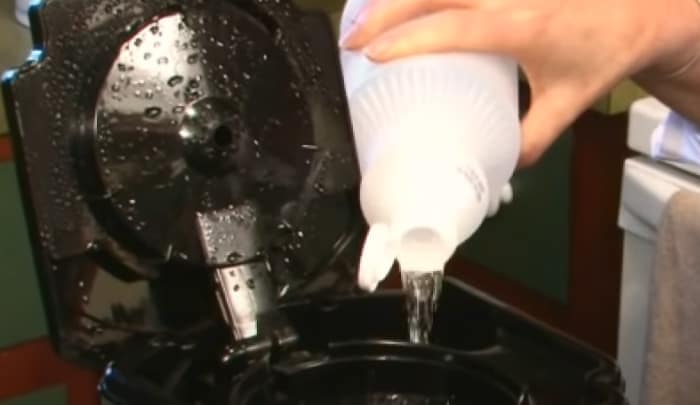
Top 3 Ways to Clean a Coffee Maker Without Vinegar:
1. Lemon Juice
Vinegar contains acidic lead, which makes it a very effective cleaning agent, and hence a good substitute would be lemon juice. We have tried and tested various proportions in creating the best solution, and finally found the best method!
You should first mix lemon juice and water using a one-to-one ratio. If you like, you can add more lemon juice to make it stronger, but we noticed that the effects are relatively the same. Next, you should run the solution once through your coffee maker, just like how you would when you make a cup of coffee, just without the addition of coffee grounds. We would recommend running the machine at least three to five times after cleaning it to remove any lingering taste of lemon juice an then rinse it with the faucet of your kitchen.
The pros of using lemon juice are that it provides similar effects to using vinegar, but without the lingering effects of vinegar. I am sure most people would not want the taste of vinegar in their coffee, and hence, having lemon juice can be seen as a much better alternative.
2. Baking Soda
Another alternative to vinegar that you can use to clean your coffee maker is baking soda. Baking soda and vinegar are common household staples for cleaning, but in this case, baking soda alone can be a very convenient substitute for vinegar. You can easily find it in your local supermarkets, making it readily available for your cleaning needs that you can use to clean your coffee maker is baking soda. Baking soda is another common household staple that you can also easily find in your local supermarkets, making it a very convenient substitute for vinegar.
How you can go about creating your solution is by mixing a cup of water with ¼ cup of baking soda. Similar to the previous technique, run the solution through the coffee maker, and then with water again for the next three to five rounds.
3. Cleaning the Carafe
Many a time, people forget about cleaning their carafe. An easy way to clean it is by mixing together salt and ice. The proportions aren’t important, just remember to also use a sponge to scrub the inside of the carafe.
Using Borax to Decalcify Your Coffee Pot: A Natural Kitchen Cleaner
Another product you can use to clean and decalcify your coffee pot is to use Borax. You can mix 2 cups of warm water, around 40°C, with two teaspoons of borax, and as soon as it’s done, you can discard the mixture. Afterward, you should rinse the coffee machine thoroughly to remove any debris in the coffee maker. There are other chemicals that a good against mold too.
Getting Rid Of Vinegar Smell
To remove any vinegar smell remaining in the coffee maker, you can try a method similar to cleaning a cloudy glass top stove. Put some ice into the bottom of the empty coffee carafe, and also add a slice of lemon as well as a tablespoon of salt. Afterward, leave the mixture to sit in for an hour or so before you rinse it off.
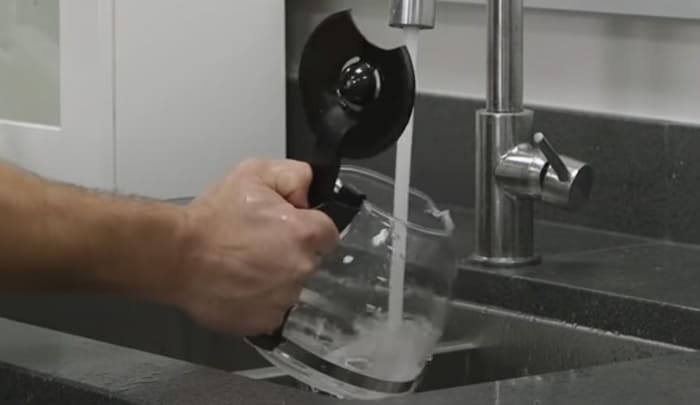
These methods are like home-made soap
With that, this concludes the various ways you can go about cleaning your coffee maker. Although vinegar can be an effective way to clean your coffee machine, we also have to keep in mind the negatives of using vinegar, and hence propose a few alternatives that are just as effective. We hope you took away something useful! So, what are you waiting for? It’s time to try using these vinegar alternatives to clean your coffee maker! And remember, just as you can put aluminum cookware in your dishwasher, you can use these simple, household items to keep your coffee maker sparkling clean. Although vinegar can be an effective way to clean your coffee machine, we also have to keep in mind the negatives of using vinegar, and hence propose a few alternatives that are just as effective. We hope you took away something useful! So, what are you waiting for? It’s time to try using these vinegar alternatives to clean your coffee maker!
“As a seasoned barista, I understand the importance of maintaining a clean coffee maker. You don’t always need to resort to harsh chemicals or vinegar, there are eco-friendly options out there. Citric acid is a popular alternative with antibacterial properties that ensures your coffee maker stays in pristine condition. Additionally, baking soda followed by hot water is also an effective means to clean your machine. Trust me, you will notice a major difference in the taste once you adopt these natural cleaning methods.”
Zachary Northman, Certified Barista
References
https://www.bhg.com/homekeeping/house-cleaning/tips/how-to-clean-a-coffee-maker-281474979530476/

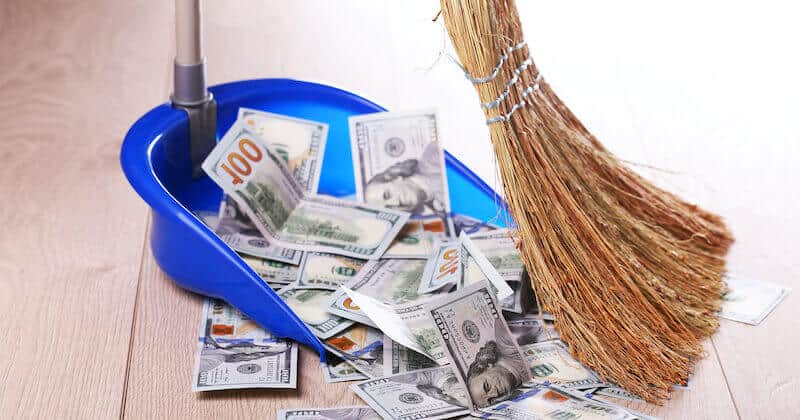
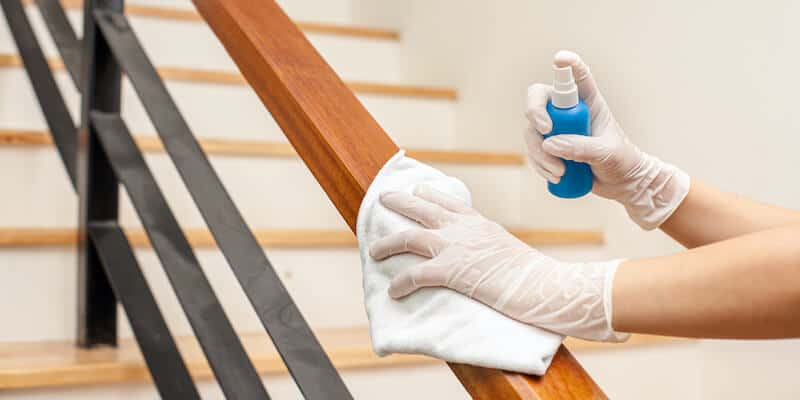


I once saw under a microscope a sample swabbed from the innards of my neglected coffee maker, you wouldn’t believe the ‘mini-zoo’ that thrived in there!
Oh, Victor, your shocking encounter resonated with my early days as a barista. Your description of the ‘mini-zoo’ is both terrifying and sadly, very plausible for coffee makers left unkempt.
As a stickler for cleanliness, I couldn’t agree more. My go-to coffee maker cleaning routine includes a monthly deep clean involving a vinegar-water solution, which works wonders in eliminating any mineral buildup and prevent any ‘mini-zoo’ scenarios in my beloved machine.
Bartholomew, I appreciate your method. However, from an engineering point of view, consider using citric acid instead of vinegar as it has lower pH levels, which makes it more effective at descaling.
Quincy Jameson, your recommendation of citric acid over typical vinegar is noted. Citric acid indeed has advantages due to higher acidity levels which makes it more effective at breaking down limescale deposits. However, I’d add that it’s crucial to rinse thoroughly post-cleaning to ensure no residue remains that could potentially alter the taste of your next pot. Lastly, consider the convenience factor; vinegar is generally more readily available in homes compared to citric acid, which might be an influencing choice factor for some.
Quincy, you’re absolutely correct about vinegar often being more accessible in homes than citic acid. However, in my experience as an appliance tech, I’ve seen that the extra effort to purchase citric acid can be worth it when it comes to maintaining the longevity of your machine by ensuring all lime scale and mineral deposits are efficiently broken down.
Sure Kendrick, I’ve been using citric acid for years to clean my coffee maker. Given its a chelating agent, it efficiently breaks down the lime scale and mineral deposit. I might be old school but I like understanding what I’m using at a molecular level – gives me peace of mind that my morning cup isn’t tainted by any residue lurking inside the machine! And trust me, one pack lasts so long you won’t notice the difference in cost!
I agree with you, Jacinta. Working as a barista made me realize the importance of using citric acid due to its ability to break down lime scale and mineral deposits efficiently. It indeed doesn’t compromise the authentic taste of the coffee even an iota!